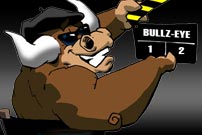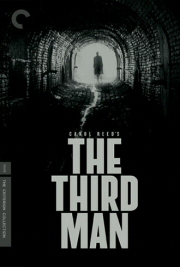 With the temperature dropping, it's time to find someone to keep you warm. Find your hookups with our online dating guide!
With the temperature dropping, it's time to find someone to keep you warm. Find your hookups with our online dating guide!
- Rated NR
- Thriller
- 1949
- Buy the BD
Reviewed by Jason Zingale
()
poilers are the bane of any moviegoer’s existence, but you can’t avoid them all, especially when dealing with a film that’s 60 years old. Take, for instance, my virgin viewing of Carol Reed’s “The Third Man," which I went into with the knowledge that Orson Welles played a character named Harry Lime, only to then witness his funeral without ever seeing him on screen. Knowing that Lime wasn’t really dead didn’t necessarily ruin the film for me, but it did take a bite out of the experience. Still, despite his limited appearance, Welles has remained the face of “The Third Man" for years, and rightfully so. His eleventh hour performance is one of the best of his career, and without it, the movie wouldn’t be quite as memorable.
Joseph Cotton stars as Holly Martins, a broke pulp fiction novelist who travels to post-war Vienna with the promise of a job from his good friend Harry Lime (Welles). When he arrives to find that Lime has been recently killed in a car accident, however, Holly begins poking around town looking for answers. Lime’s acquaintances, Baron Kurtz (Ernst Duetsch) and Mr. Popescu (Siegfried Breuer), insist that they were the only ones there at the time of Lime’s death. But when Holly discovers that a third man was present, he sets out to reveal the truth behind what really happened, against the advice of Lime’s former lover (Alida Valli) and the city’s British liaison, Major Calloway (Trevor Howard).
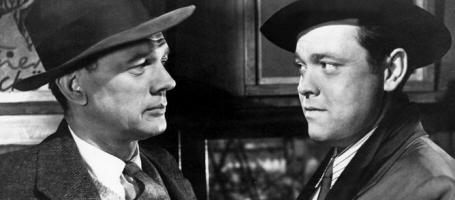
For as much as “The Third Man” is lauded as a classic, there’s not a whole lot going on plot-wise. At least, that’s what any basic plot summary would lead you to believe. But while the story moves at a snail’s pace, the multi-layered mystery of Lime’s death provides limitless tension. If only the actors made better use of that suspense, the film might be just as well known for its performances as it is for its look and sound. Unfortunately, there isn’t a single cast member other than Welles who stands out from the pack. Cotton is competent as Holly Martins, but nothing more, while Valli never really makes the most of her role as the femme fatale.
Orson Welle’s cocky performance as Harry Lime eventually brings some life to the proceedings, so it should come as no surprise that he also happens to be featured prominently in two of the best scenes. The end sewer chase, in particular, is the film’s piece de resistance – the climax of a footrace through (and underneath) Vienna that highlights Robert Krasker’s sublime cinematography. Anton Karas’ zither-only score also plays an important part in the movie's success, but while the soundtrack could have just as easily been recorded with a more conventional string instrument, it’s hard to imagine a film surrounded by so many bright lights and dark shadows being shot in anything other than black and white. True, it still doesn’t make “The Third Man” as great as history remembers it, but without Carol Reed's classic 1949 noir, we wouldn’t have films like “Chinatown” or “The Departed." Think about that the next time you refuse to watch a movie just because it's not in color.
Criterion Collection Blu-Ray Review:
In typical Criterion fashion, the Blu-ray release of “The Third Man” is loaded with bonus material, including two audio commentaries (one with director Steven Soderbergh and writer Tony Gilroy, and another with film scholar Dana Polan), and an abridged recording of Graham Greene’s script treatment that plays over the movie. The audio commentaries are undoubtedly the best extras on the disc, with Polan’s track proving to be the more interesting of the two, but those desperate for even more behind-the-scenes info will find the included documentaries equally engaging. The 2005 doc, “Shadowing the Third Man,” examines the truth behind the many rumors surrounding the production of the film; the 2000 Austrian doc, “Who Was the Third Man?,” takes a more historical stance on the film’s legacy; and “Graham Green: The Hunted Man” serves as a nice profile on the film’s writer.
Additionally, Criterion has included an episode of the radio show “The Lives of Harry Lime,” the 1951 Lux Radio Theatre adaptation of “The Third Man,” the alternate voice-over opening to the U.S. version of the film, two photo galleries, and an essay by film critic Luc Sante. It’s just too bad they didn’t put as much thought into the packaging as they did for the extras. The cardboard box that the movie is housed in is extremely flimsy, so unless you really care about owning “The Third Man” in HD, you’d be better off with the DVD version that includes the same extras.
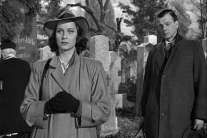 |
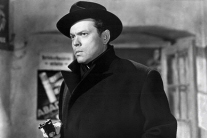 |
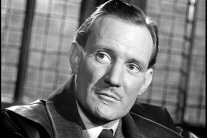 |
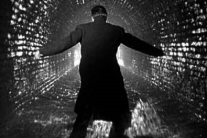 |
You can follow us on Twitter and Facebook for content updates. Also, sign up for our email list for weekly updates and check us out on Google+ as well.
